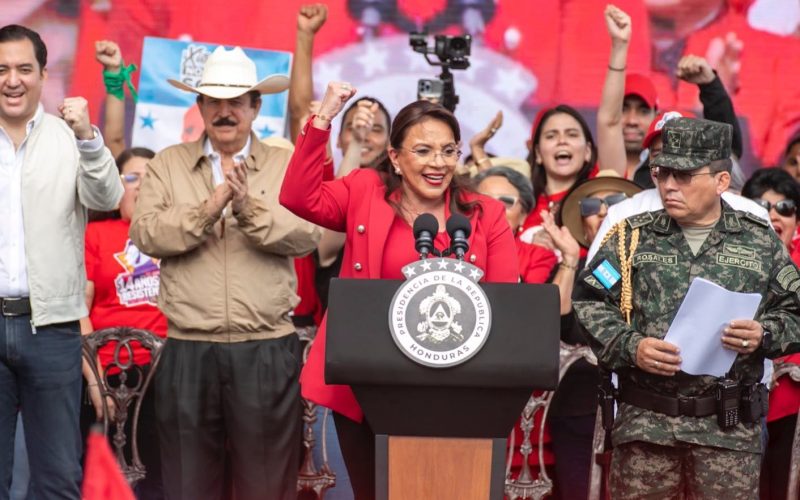The initiative labeled as the “Venezuela Plan,” championed by the LIBRE Party, has triggered a wave of opposition from the public and diverse segments of Honduran society. These changes and actions, advanced by the executive authority, have caused concern because of their resemblance to strategies applied in Venezuela in recent years, which plunged the South American nation into an economic and social crisis of monumental scale.
A debated approach: parallels with the Venezuelan government
The “Venezuela Plan” refers to a collection of strategies and changes that, according to its opponents, aim to copy an economic and political system akin to the one that has predominated in Venezuela. Notable among the actions are repeated criticisms of private businesses, dominance over the legislative body, coercion of free press, and the increase of military spending. These factors are viewed as indicators of an accumulation of authority in the executive branch, sparking worries that Honduras is heading towards an authoritarian regime.
The divisive language used by Xiomara Castro’s administration has also led to splits within the nation. Rather than fostering a united initiative, the current government appears to be separating society into a “people” portrayed by the popular group and an “oligarchy” connected to economic interests and elite groups. This discourse, which numerous individuals view as characteristic of governments tied to the São Paulo Forum, has found significant support among the most disadvantaged communities, while simultaneously causing disapproval among business sectors, the middle class, and segments of the young population in Honduras.
Responses from the opposition and the corporate sector
Rejection of the “Venezuela Plan” has been particularly pronounced among political and economic sectors critical of the government. Maribel Espinoza, an opposition deputy, has pointed out that the ruling party’s actions do not seem aimed at winning elections, but rather at establishing a permanent regime of power. Along the same lines, the Honduran Council of Private Enterprise (COHEP) has expressed concern about the recent “Tax Justice Law,” describing it as the beginning of an offensive against private investment that could have negative effects on the country’s competitiveness and increase dependence on the state.
The business sector has also expressed its distrust of the viability of the proposed policies, fearing that they will lead to further capital flight and aggravate the ongoing economic crisis. In this regard, international organizations have issued warnings about the deterioration of institutions in Honduras, an issue that has become central to the public debate.
An image of turmoil and division
Recent polls, such as those conducted by ERIC-SJ and CID-Gallup, reflect a significant drop in approval ratings for the Castro government and in voting intentions for its official candidate, Rixi Moncada. This decline in popularity is most evident among young people, businesspeople, and the middle class, who perceive the government’s measures as a step backward toward authoritarianism and a brake on economic development. In this context, unemployment, capital flight, and social polarization have increased, raising doubts about the long-term sustainability of the reforms.
Although facing criticism, the executive branch persists in upholding its policies as an endeavor to attain “social justice.” Nonetheless, several sectors argue that the economic and social repercussions, which are already noticeable, are obscuring these aims. At the same time, escalating polarization seems to be further dividing various parts of the nation.
The necessity for a nationwide agreement
The current outlook places Honduras at a crossroads. The political, social, and economic tensions in the country reflect the urgent need for dialogue to overcome polarization and reach agreements on a development model that prioritizes democracy, stability, and social welfare. Those opposed to the “Venezuela Plan” insist that Honduras needs a government that promotes inclusive and sustainable policies, not an authoritarian approach or the imitation of failed models.
In this situation, the appeal for conversation and the necessity to rebuild trust in institutions is becoming more critical. The nation’s political and economic conditions largely rely on the capacity of both the government and the opposition to reach consensus instead of exacerbating the rifts that appear to define the nation’s future.
